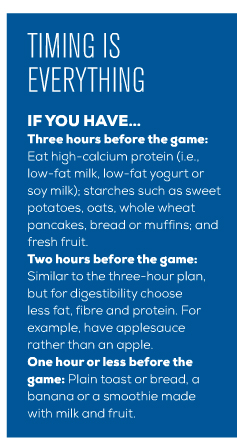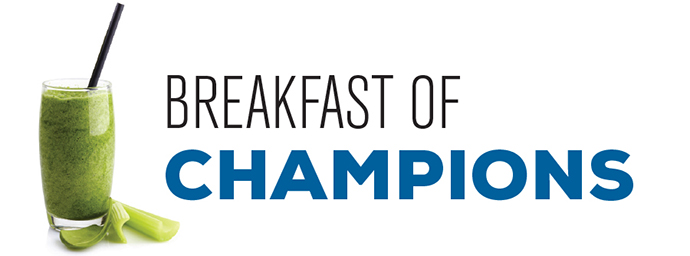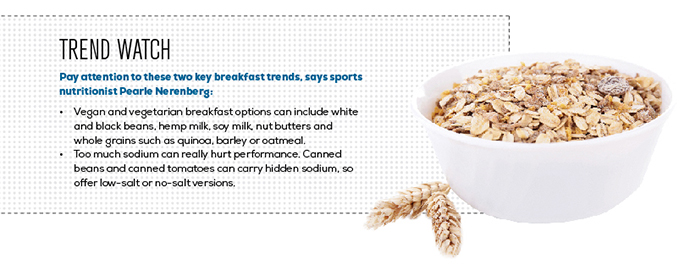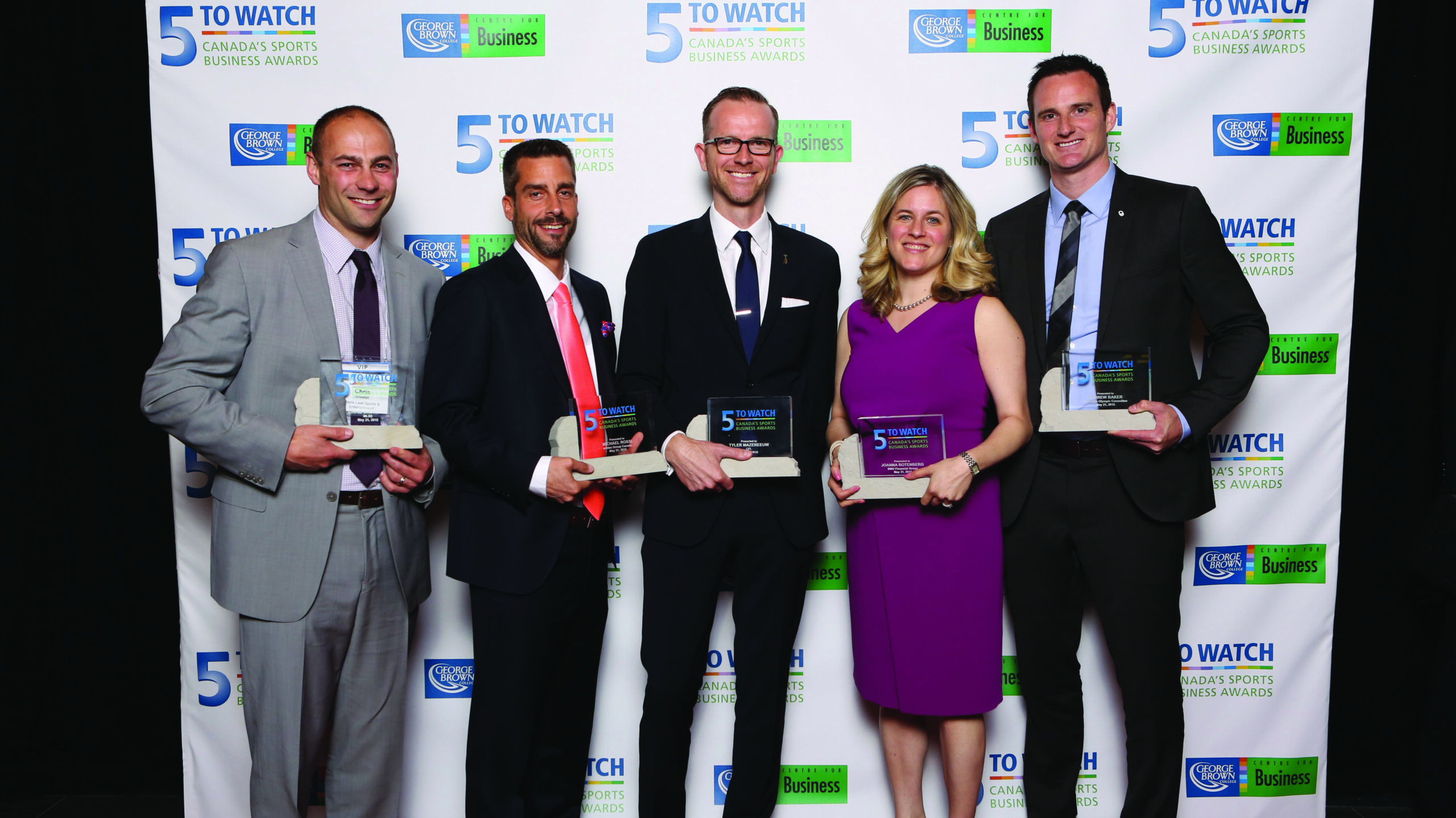Amateur athletes need to start their days with the right nutrition. Here’s what’s cooking.
‘
 “In sports nutrition, timing is everything,” says Pearle Nerenberg, a Montreal sports dietitian who is the author of the The Nutrition Edge for Hockey Performance, and chair of The Hockey Nutrition Network. “If you have good food but bad timing, the nutrition benefits go out the window.” Providing a good breakfast for athletes, therefore, means offering a range of healthy choices.
“In sports nutrition, timing is everything,” says Pearle Nerenberg, a Montreal sports dietitian who is the author of the The Nutrition Edge for Hockey Performance, and chair of The Hockey Nutrition Network. “If you have good food but bad timing, the nutrition benefits go out the window.” Providing a good breakfast for athletes, therefore, means offering a range of healthy choices.
Clear communication between tournament organizers, team managers and catering staff is key when it comes to food sensitivities and allergies, as well as cultural preferences, notes Paul Crowley, president of Canadian Hockey Enterprises in Peterborough, Ont., which organizes 42 tournaments and 15 camps in North America each year. “Still, in terms of food allergies, people tend to make their own arrangements.” He adds that his company has also worked with teams that have Jewish members, to ensure that dietary requirements and meal timing are met.
“We always tell teams that if you want to play in the Sunday game, you have to eat well all weekend,” he says. “You can absolutely see it in the level of intensity and alertness.”





